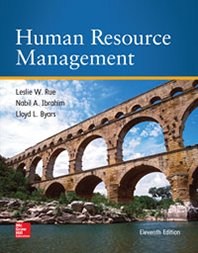Human Resource Management Raymond Noe 11Edition
Human Resource Management, 11e (Noe)
Chapter 15 Managing Human Resources Globally
1) The North American Free Trade Agreement (NAFTA) is an agreement among Canada, the United States, and Mexico.
Answer: TRUE
Explanation: The North American Free Trade Agreement (NAFTA) is an agreement among Canada, the United States, and Mexico that has created a free market even larger than the European Economic Community. The United States and Canada already had a free trade agreement since 1989, but NAFTA brought Mexico into the consortium.
Difficulty: 1 Easy
Topic: Current Global Changes
Learning Objective: 15-01 Identify the recent changes that have caused companies to expand into international markets.
Bloom’s: Remember
AACSB: Analytic
Accessibility: Keyboard Navigation
2) The General Agreement on Tariffs and Trade (GATT) is an international framework of rules for reducing trade barriers across countries around the world.
Answer: TRUE
Explanation: The General Agreement on Tariffs and Trade (GATT) is an international framework of rules and principles for reducing trade barriers across countries around the world. It currently consists of more than 100 member-nations.
Difficulty: 1 Easy
Topic: Current Global Changes
Learning Objective: 15-01 Identify the recent changes that have caused companies to expand into international markets.
Bloom’s: Remember
AACSB: Analytic
Accessibility: Keyboard Navigation
3) The World Trade Organization (WTO) initiated the North American Free Trade Agreement (NAFTA) to resolve disputes among its members.
Answer: FALSE
Explanation: The GATT established the World Trade Organization (WTO) to resolve disputes among its member countries spread across the globe. The North American Free Trade Agreement (NAFTA) is an agreement on free trade among Canada, the United States, and Mexico.
Difficulty: 1 Easy
Topic: Current Global Changes
Learning Objective: 15-01 Identify the recent changes that have caused companies to expand into international markets.
Bloom’s: Remember
AACSB: Analytic
Accessibility: Keyboard Navigation
4) Margaret grew up in an individualistic culture. Now as an adult she is expected to look after the interests of her community over her own personal interests.
Answer: FALSE
Explanation: In individualist cultures, such as the United States, Great Britain, and the Netherlands, people are expected to look after their own interests and the interests of their immediate families. The individual is expected to stand on her own two feet rather than be protected by the group.
Difficulty: 2 Medium
Topic: Factors Affecting HRM in Global Markets
Learning Objective: 15-02 Discuss the four factors that most strongly influence HRM in international markets.
Bloom’s: Understand
AACSB: Analytic
Accessibility: Keyboard Navigation
5) Denmark seeks to eliminate inequalities in power and wealth as much as possible, since it has a large power distance.
Answer: FALSE
Explanation: Cultures with small power distance, such as those of Denmark and Israel, seek to eliminate inequalities in power and wealth as much as possible, whereas countries with large power distances, such as India and the Philippines, seek to maintain those differences.
Difficulty: 2 Medium
Topic: Factors Affecting HRM in Global Markets
Learning Objective: 15-02 Discuss the four factors that most strongly influence HRM in international markets.
Bloom’s: Understand
AACSB: Analytic
Accessibility: Keyboard Navigation
6) Uncertainty avoidance describes how a culture deals with hierarchical power relationships.
Answer: FALSE
Explanation: Uncertainty avoidance describes how cultures seek to deal with the fact that the future is not perfectly predictable. It is defined as the degree to which people in a culture prefer structured over unstructured situations.
Difficulty: 1 Easy
Topic: Factors Affecting HRM in Global Markets
Learning Objective: 15-02 Discuss the four factors that most strongly influence HRM in international markets.
Bloom’s: Remember
AACSB: Analytic
Accessibility: Keyboard Navigation
7) Cultures with weak uncertainty avoidance tend to be rather easygoing and flexible regarding different views.
Answer: TRUE
Explanation: Some cultures, such as those of Singapore and Jamaica, have weak uncertainty avoidance. They socialize individuals to accept this uncertainty and take each day as it comes. People from these cultures tend to be rather easygoing and flexible regarding different views.
Difficulty: 2 Medium
Topic: Factors Affecting HRM in Global Markets
Learning Objective: 15-02 Discuss the four factors that most strongly influence HRM in international markets.
Bloom’s: Understand
AACSB: Analytic
Accessibility: Keyboard Navigation
8) Masculine cultures value relationships over money.
Answer: FALSE
Explanation: In masculine cultures, what are considered traditionally masculine values—showing off, achieving something visible, and making money—permeate the society. Feminine cultures promote values that have been traditionally regarded as feminine, such as putting relationships before money, helping others, and preserving the environment.
Difficulty: 2 Medium
Topic: Factors Affecting HRM in Global Markets
Learning Objective: 15-02 Discuss the four factors that most strongly influence HRM in international markets.
Bloom’s: Understand
AACSB: Analytic
Accessibility: Keyboard Navigation
9) Mitsuru likes to show off and flaunt his success. These masculine values permeate his culture.
Answer: TRUE
Explanation: In masculine cultures, such as those of Germany and Japan, what are considered traditionally masculine values—showing off, achieving something visible, and making money—permeate the society. These societies stress assertiveness, performance, success, and competition.
Difficulty: 2 Medium
Topic: Factors Affecting HRM in Global Markets
Learning Objective: 15-02 Discuss the four factors that most strongly influence HRM in international markets.
Bloom’s: Understand
AACSB: Analytic
Accessibility: Keyboard Navigation
10) According to Geert Hofstede’s research, countries with individualist cultures were wealthier.
Answer:TRUE
Explanation: Hofstede found that countries with individualist cultures were wealthier than collectivist cultures. Collectivist cultures with high power distance were all poor.
Difficulty: 1 Easy
Topic: Factors Affecting HRM in Global Markets
Learning Objective: 15-02 Discuss the four factors that most strongly influence HRM in international markets.
Bloom’s: Remember
AACSB: Analytic
Accessibility: Keyboard Navigation











Reviews
There are no reviews yet.